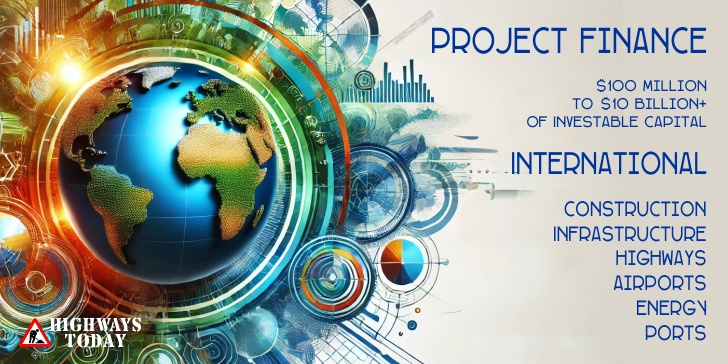Rio Tinto Bets $2.5 Billion on Argentina’s Lithium Future
Rio Tinto has unveiled an ambitious $2.5 billion investment to expand its Rincon lithium project in Argentina, marking a significant leap forward in the company’s quest to become a major player in the global battery materials market.
With a projected capacity of 60,000 tonnes of battery-grade lithium carbonate per year, Rincon is poised to solidify its position as a cornerstone of Rio Tinto’s evolving commodity portfolio.
This expansion plan includes the integration of a 57,000-tonne capacity plant with an existing 3,000-tonne starter facility. Scheduled to commence construction in mid-2025—pending regulatory approval—the expanded operation is expected to begin production by 2028, followed by a three-year ramp-up to full capacity. The mine’s 40-year lifespan promises to generate substantial economic benefits for local communities, bolstering job creation and supporting regional businesses.
Driving the Energy Transition
Rio Tinto’s Chief Executive Jakob Stausholm encapsulated the vision behind the investment: “The attractive long-term outlook for lithium driven by the energy transition underpins our investment in Rincon. We are dedicated to developing this tier 1, world-class resource at scale at the low end of the cost curve. We are equally committed to meeting the highest ESG standards, leveraging our advanced technology to halve the amount of water used in processing, while continuing to grow our mutually beneficial partnerships with local communities and Salta province.”
Stausholm also highlighted Argentina’s robust support for economic growth, skilled workforce, and resource-rich landscapes as critical factors in Rio Tinto’s decision to deepen its involvement in the country’s lithium sector. He added: “This investment alongside our proposed Arcadium acquisition ensures that lithium will become one of the key pillars of our commodity portfolio for decades to come.”
Direct Lithium Extraction
Situated in Argentina’s famed “lithium triangle,” the Rincon project utilises innovative direct lithium extraction (DLE) technology. This method is not only more efficient but also environmentally conscious, conserving water and reducing waste compared to traditional lithium extraction techniques. The technology allows for a consistent production of high-quality lithium carbonate, a critical component in lithium-ion batteries used in electric vehicles and renewable energy storage systems.
Rincon’s unique approach supports Rio Tinto’s commitment to Environmental, Social, and Governance (ESG) standards. By halving water usage and minimising environmental impact, the company aims to set a benchmark for sustainable practices in the mining industry.
A Thriving Hub for Lithium Investment
Argentina has rapidly emerged as a global hotspot for lithium production, thanks to its favourable investment climate. Recent economic reforms, including the introduction of the Incentive Regime for Large Investments (RIGI), have created an enticing environment for international investors.
RIGI offers numerous benefits such as:
- Lower tax rates
- Accelerated depreciation schedules
- Regulatory stability for 30 years
- Enhanced investor protections
These measures ensure that projects like Rincon are shielded from potential policy shifts, offering a stable platform for long-term growth.
In this context, Rio Tinto’s Rincon expansion not only aligns with Argentina’s ambitions to become a leading lithium producer but also strengthens the country’s role in the global supply chain for renewable energy technologies.
A Resilient Asset in a Competitive Market
The Rincon project boasts an impressive ore reserve base, which has grown by 60% since Rio Tinto acquired the site. This positions the asset in the first quartile of the cost curve, enabling it to maintain profitability throughout market fluctuations. Such resilience ensures that Rincon remains a competitive force as demand for lithium continues to skyrocket.
Lithium is a cornerstone of the energy transition, fuelling innovations in electric vehicles, renewable energy storage, and advanced technologies. With its low-cost production model and sustainable practices, Rincon is set to play a pivotal role in meeting the world’s growing appetite for lithium.
Community Impact and Job Creation
Beyond its economic contributions, the Rincon project is poised to deliver significant benefits to local communities. The expansion will create thousands of jobs during the construction phase and throughout the mine’s operational lifespan. Local businesses stand to gain from increased demand for goods and services, further stimulating the regional economy.
Moreover, Rio Tinto’s commitment to forging strong relationships with local communities and government stakeholders underscores its emphasis on mutual growth. By fostering education, training, and employment opportunities, the company aims to build a lasting legacy of economic development in Salta province.
A Bright Future for Lithium
Rio Tinto’s $2.5 billion investment in Rincon reflects its strategic focus on lithium as a cornerstone of its future portfolio. With cutting-edge technology, robust ESG commitments, and a favourable investment climate in Argentina, the company is well-positioned to become a global leader in lithium production.
As the energy transition accelerates, Rincon will undoubtedly play a critical role in shaping a sustainable, electrified future.






























